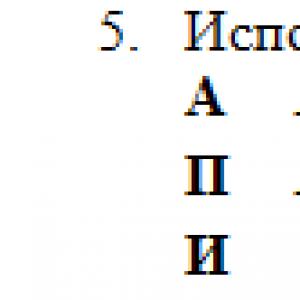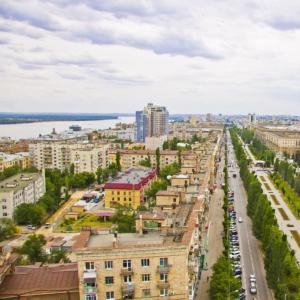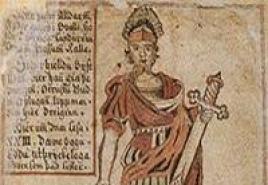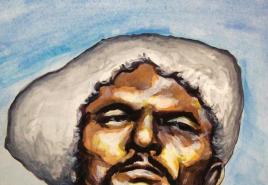House by the Road Tvardov analysis by chapters. The poem “House by the Road” is a story about the fate of a peasant family
A. Tvardovsky wrote the poem “House by the Road” for all times and generations. Such a work, strong in its tragedy, always remains relevant because it shows the main epic moments of humanity. The author, with all his poetic allegories, conveys to the reader at what price a world destroyed by war is achieved. Tvardovsky clearly shows the heroism of people, not through slogans and propaganda, but deep, reliable and indisputable.
Reading the poem, you can clearly see the image of three times: past, present, future. The past describes a peaceful, clear and calm time. The confidence of people - peasants in their peaceful concerns: about their own home, garden, children, mowing grass and plowing the land. Melodic song lines sung in the bright hour:
“Mow the braid
While it’s dew”...
They sweep through the entire work and, as a symbol for a bright future, sound like an anthem.
Like holy calm, the writer talks about the last peaceful day. Which will be remembered throughout the poem by the main characters - an ordinary peasant family. Memorable moments of husband and wife Andrei and Anna Sivtsov, about their children, about the measured life that the war mercilessly took away will appear.
The terrible and destructive present time has shackled people with its military shackles. The husband who went to the front sees the whole bloody reality. However, his wife, who remained in the house by the road with her children, feels like a hostage behind enemy lines, but still, with all her might, continues to work hard on her land with the same neighbors - peasants. But the Nazis take them prisoner. Tvardovsky was not afraid to tell the painful and unbearable experiences of the prisoners, who in an instant became traitors to their entire native country. The writer depicts the inaccuracy of this judgment, which ruined so many crippled lives of his compatriots. The horror that is difficult to convey is the loss of a house burned by enemies, saying goodbye to your loved one. It is demonstrated to the maximum by the dramatic lines of the poem, which describe the birth of a son to Anna Sivtsova in fascist captivity. The resilience of this woman is shown as an example of fortitude in forced military events.
In the last chapter of the poem, the reader will feel not the joy of the victory of Andrei Sivtsov, who returned from the front, but the sadness of devastated loneliness. However, the hero found the willpower to rebuild the house again, do household chores, mow the grass again - and all this with great hope of returning his beloved family to their native land. How much grief lies in this blow of fate for millions of innocent souls.
The main idea of the author of the poem "House by the Road" is expressed in the morality of the work. And the moral is this: that every inhabitant of our planet must remember the importance of peaceful relations between people and countries. And also even about the imaginary boundaries of time, so that the deep memory of ancestors necessarily lives in the conscience of the heart, and not only in an individual person, but also in the society of humanity.
- < Назад
- Forward >
Essays on Russian literature
"Hero of Our Time" - main characters (221)
The main character of the novel is Grigory Pechorin, an extraordinary personality, the author drew “ modern man, as he understands him, and has met him too often.” Pechorin is full of seeming...
"Judushka Golovlev is a one-of-a-kind type (231)
Judushka Golovlev is a brilliant artistic discovery of M. E. Saltykov-Shchedrin. No one else has been able to reveal the image of an idle talker with such accusatory power. Portrait of Judas...
"Little Man" in Gogol's story "The Overcoat" (228)
Nikolai Vasilyevich Gogol's story "The Overcoat" played big role in the development of Russian literature. “We all came out of Gogol’s “The Overcoat”,” said F. M. Dostoevsky, assessing it...
"Little Man" in the works of Gogol (222)
N.V. Gogol revealed in his “Petersburg Tales” the true side of metropolitan life and the life of officials. He most clearly demonstrated the possibilities of the “natural school” in...
"The Fate of Man" main characters (273)
Andrey Sokolov – main character the story “The Fate of Man” by Sholokhov. His character is truly Russian. How many troubles he experienced, what torments he endured, only he himself knows. Hero...
1812 IN THE IMAGE OF L. N. TOLSTOY (195)
Essay "War and Peace" by Tolstoy. L.N. Tolstoy was a participant in the Sevastopol defense. In these tragic months of the shameful defeat of the Russian army, he understood a lot, realized how terrible the war was, what...
Silentium Tyutchev analysis of the poem (213)
This poem by the great poet is entirely dedicated to main problem any creative personality- loneliness. This philosophical, lyrical poem is filled...
"House by the Road" analysis of the work - theme, idea, genre, plot, composition, characters, issues and other issues are discussed in this article.
Tvardovsky’s deep democracy, so clearly manifested in “Vasily Terkin”, also distinguishes the concept of his poem “House by the Road” (1942-1946). It is dedicated to a simple fate peasant family who experienced all the hardships of the war. The subtitle of the poem - “lyrical chronicle” - exactly corresponds to its content and character. The chronicle genre in its traditional sense is a presentation historical events in their time sequence. For the poet, the fate of the Sivtsov family, with its tragedy and typicality for those years, not only meets these genre requirements, but also evokes complicity, deep empathy, reaching enormous emotional intensity and prompting the author to constantly intervene in the narrative.
A fate similar to that of Andrei Sivtsov was already outlined in “Vasily Terkin”, in the chapters “Before the Battle” and “About the Orphan Soldier”. Now it is depicted in more detail and even more dramatized.
The picture of the last peaceful Sunday that opens the poem is filled with that “traditional beauty” of rural labor (mowing “for a festive task”), which Tvardovsky poetized since the time of “The Country of Ant”. This dear and bitter memory of the familiar and beloved peasant life, of “housing, comfort, order,” interrupted (and for many, cut off forever) by the war, will subsequently constantly be resurrected in the poem along with the age-old saying:
Mow, scythe,
While there is dew,
Down with the dew -
And we're home.
During the difficult time of retreat, Sivtsov secretly goes home for a short time - “thin, overgrown, as if covered all over with ash” (the “fringe of the sleeve” of a frayed overcoat is briefly mentioned), but stubbornly plotting a “route not written by anyone” in pursuit of the front.
His wife's story is even more dramatic. Having always admired the image of a woman-mother, capturing it in many poems over the years (“Song”, “Mothers”, “Mother and Son”, etc.), this time Tvardovsky created a particularly multifaceted character. Anna Sivtsova is not just charming (“Sharp in speech, quick in deeds, Like a snake, she walked all over”), but full of the greatest dedication and mental strength, allowing her to endure the most terrible trials, for example, being sent to a foreign land, to Germany:
And even barefoot in the snow,
Have time to dress three.
With a trembling hand, catch
Hooks, ties, mother.
Strive for a simple lie
Allay childish fear.
And put all yours on the road,
Grab it like out of fire.
Anna's maternal tragedy and at the same time heroism reach their peak when her son is born in a convict barracks, seemingly doomed to death. Wonderfully using the poetics of folk lamentations and cries (“Why did the twig turn green at such an unkind time? Why did you happen, son, my dear child?”), Tvardovsky conveys an imaginary, fantastic conversation between a mother and her child, the transition from despair to hope:
I am small, I am weak, I am the freshness of the day
I can smell it on your skin.
Let the wind blow on me -
And I will untie my hands,
But you won't let him blow,
You won't let me, my dear,
While your chest sighs,
While she's still alive.
The heroes of “Road House” also find themselves face to face with death, hopelessness, and despair, as was the case with Terkin in the chapter “Death and the Warrior,” and they also emerge victorious from this confrontation. In the essay “In Native Places,” talking about his fellow villager, who, like Andrei Sivtsov, was building a house on the ashes, Tvardovsky expressed his attitude to this with journalistic directness: “It seemed more and more natural to me to define the construction of this simple log cabin as some kind of feat . The feat of a simple worker, grain grower and family man who shed blood in the war for native land and now on it, ruined and despondent over the years of his absence, beginning to start life all over again...” In the poem, the author provided the opportunity for the readers themselves to draw a similar conclusion, limiting themselves to the most laconic description of this quiet feat of Andrei Sivtsov:
...pulled with a sore leg
To the old village.
I took a smoke break, out of my overcoat,
Marked the plan with a shovel.
If I wait for my wife and children to go home,
This is how you need to build a house.
She pulled somehow
Along the highway track -
With the smaller one, asleep in my arms,
And the whole family crowd.
The reader wants to see Anna in her, but the artist’s tact warned Tvardovsky against a happy ending. In one of the articles, the poet noted that many best works Russian prose, “having arisen from living life... in their endings they strive, as it were, to close with the same reality from which they came, and to dissolve in it, leaving the reader wide scope for the mental continuation of them, for further thinking, “further exploration” of the human beings touched upon in them destinies, ideas and questions." And in his own poem, Tvardovsky allowed readers to vividly imagine the tragic end that similar stories had in the lives of many people.
“House by the Road” by A. Tvardovsky is a lyric-epic work. The purpose of the work is to consider the composition of the poem in connection with its genre originality.
Reveal the ideological and emotional meaning of the first chapter - the lyrical introduction to the poem about the fate of the Motherland, note the lyrical and epic principles in it, comprehend the key images of “House by the Road” and the image of the poet ( lyrical hero), whose fate is inseparable from the fate of the Motherland.
Explain the principle of selection of material in the poem; think about what the main milestones in the life of a “road house” are outlined by the author and why; what explains the generality artistic images(lack of individualization) and what are the ways to create them.
Reveal the artistic logic of the arrangement of the material, the pattern of “time displacement” and “combination of times” in the “lyrical chronicle”, the meaning of the repeated refrain “Mow, scythe, while the dew, away with the dew, and we’re home.”
Trace the development of the lyrical theme associated with the image of the poet himself, who in his comprehension and emotional perception of events merges with the heroes of the poem, and also catch the change in lyrical intonation due to the nature of the author’s thoughts and experiences.
Literature
1. Akatkin V.M. A.T. Tvardovsky: Pages of creativity: Works from different years. – Voronezh, 2008.
2. Kondratovich A. Alexander Tvardovsky: Poetry and personality. 2nd ed. – M., 1985.
3. Makedonov A. Creative path Tvardovsky: Houses and roads. – M., 1981.
4. The work of Alexander Tvardovsky: Research and materials / Ed. P.S. Vykhodtseva. – M., 1989.
5. Turkov A. M. Alexander Tvardovsky. 2nd ed., rev. and additional – M., 1981.
SECTION VI
ISSUES OF ARTISTIC STYLE (STYLISTICS)
General guidelines to the topics of Section VI
In working on the topics of this section, it is important to reveal the dependence of stylistics (vocabulary, syntax, tropes and figures) on the ideological and artistic tasks that the writer solves in the work. At the same time, it is necessary to take into account that the word in an artistic context receives new semantic and emotional shades, as if revealing the forces hidden in it. In poetic speech, any words used by the writer, as well as the synonyms he selects, archaisms, prosaisms, dialectisms, and barbarisms acquire aesthetic significance. In each specific case, their function should be identified. This refers to poetic syntax, which, along with vocabulary, gives artistic speech a special expressiveness.
In style work of art Trails also play a significant role. They are born from the creative imagination of the writer, and therefore they reflect the worldview, the author’s attitude and the nature of his talent. Analysis of stylistics requires an understanding of the aesthetic meaning of any trope - epithet, comparison, metaphor, personification, metonymy, periphrasis, irony, symbol, allegory, etc., understanding its connection with the entire ideological and emotional structure of the work. The nature of the choice of tropes and their use in an artistic context always reveals the creative individuality of the writer. It needs to be revealed when working on the topics of this section. Involving the creative history of a work will help you understand how much work the writer does in search of the necessary word or image.
It is also necessary to take into account the historical and literary context, the certain power of literary tradition. This will make it possible to discover that certain metaphors and epithets at different stages of the development of literature can be interpreted as new or traditional; see how the artist updates traditional tropes and fills them with new meaning.
When executing tests on the topics of this section it should be shown that the style of a literary work, expressing its ideological and artistic content, is determined by the specifics of the poetic type, genre, literary direction(method), the creative individuality of the artist.
TOPIC 42. COMPARATIVE ANALYSIS OF THE STYLISTICS OF A. S. PUSHKIN’S POEMS
“TRAFFIC COMPLAINTS” AND “DO I WALK ALONG NOISY STREETS...”
Reflections on life and death are the thematic basis of the themes of Pushkin’s poems indicated in the title. Through comparative analysis, prove that thematic similarity does not lead to a coincidence of the ideological and emotional content of the works. The work should clarify the stylistic and rhythmic-intonation originality of the poems, show purposefulness in the selection of vocabulary and syntactic forms, and also reveal the conditionality of the tropes created by the artist with the poetic thought underlying each poem.
In conclusion, it is necessary to trace how the style of the poems “Road Complaints” and “Do I Wander Along Noisy Streets...” expresses the diversity of the poet’s experiences associated with the same phenomena of life.
Literature
1. Blagoy D.D. The soul is in the treasured lyre. Essays on the life and work of Pushkin. 2nd ed., add. – M., 1977.
2. Nepomnyashchiy V.S. Pushkin's lyrics as a spiritual biography: Book rehearsal. – M., 2001.
3. Stepanov N. L. Pushkin’s lyrics. Essays and sketches. M., 1974.
4. Fomichev S. Pushkin’s poetry: Creative evolution. – M., 1986.
5. Chumakov Yu.N. Poetic poetry of Pushkin. – St. Petersburg, 1999.
TOPIC 43. EXPANDED METAPHOR IN POEMS
F.I. TYUTCHEV
Based on the theoretical literature known to you, define metaphor, characterize its most important artistic functions and capabilities.
Find poems in the lyrics of F.I. Tyutchev that are entirely built on the basis of one developed comparison or image. The simplest case of such a construction would be poems, parts of which (usually two) are in a relationship of compositional parallelism with each other. Tyutchev’s favorite technique was a parallel depiction of nature and the moral and psychological state of man. Describe this technique on specific examples, revealing the content of Tyutchev’s comparisons and their artistic goals.
However, metaphorical in a more precise sense of the word will not be these comparison poems, but poems where the assimilation, rapprochement, correlation of heterogeneous phenomena characteristic of metaphor is not revealed in the speech structure, but is implied. In this kind of work, of the two correlated members of the metaphor, only one is present, the second is indicated indirectly, by hint, by subtext. This technique was used by Tyutchev, for example, in the poem “What are you saying over the waters...”. It presents only one landscape plan in detail. Why, however, is the meaning of the poem not reduced to this external plane? What is the subtext of Tyutchev's landscape? Find in Tyutchev’s lyrics cases of other metaphorical images in which the external objective plane is not the only and last plane, where the picture of one phenomenon evokes associations with phenomena of another order that are not directly named. Show where in Tyutchev’s images of the material world the psychological, aesthetic, philosophical content is revealed, how the image becomes an expression of the poet’s spiritual experience.
Tyutchev’s poems such as “I am a Lutheran, I love worship...”, “Look how the West has flared up...”, “Under the breath of bad weather...”, “Not cooled down from the heat...”, and some others are distinguished by their metaphorical nature. implicit, partly hidden by their pictorial descriptiveness. Try to discover their inner idea, determine their figurative meanings. Having outlined your understanding of Tyutchev’s symbolism, consider the question of artistic expression the poet's expanded metaphors.
While working on the topic, pay attention to the subtle analysis of Tyutchev’s metaphorical nature, given by the poet’s first biographer and one of his best critics, I. S. Aksakov (see list of recommended literature) when considering such poems as “Human Tears, O Human Tears.. .”, “Noon”, “Rainbow”, and especially the poem “Send, Lord, your joy...”.
Literature
1. Ginzburg L. About lyrics. 5th edition. – M., 1997.
2. Kasatkina V.I. Poetry of F.I. Tyutchev. – M., 1978.
3. Kozhinov V.V. Tyutchev. – M., 2009.
4. Orlov O.V. Tyutchev's poetry. – M., 1981.
5. Tynyanov Yu.N. Question about Tyutchev // Tynyanov Yu.N. Poetics. History of literature. Movie. – M., 1977.
6. Chicherin A.V. Tyutchev’s lyric style // Context-74. Literary and theoretical research. – M., 1975.
MBOU "Pobedinskaya Secondary School" Tselinny District Altai Territory
Lesson on the Great Patriotic War
In 11th grade
"House by the Road"
Developed by a Russian language teacher
And literature MBOU"Pobedinskaya Secondary School"
Tselinny district of Altai Territory
Boyko Elena Valerievna
Topic: “Understanding the theme of war in the poem by A.T. Tvardovsky
"House by the Road"
Lesson objectives:
Subject: consider the presentation of military themes through the concept keywords"road" and "house";
Personal: moral and ethical orientation of the individual, development of moral readiness for empathy, persistent rejection of the destructive power of war, instilling a sense of pride in one’s people, respect for working people;
Metasubject:
educational - search and selection necessary information, free orientation and perception of the text of a work of art, semantic reading; promoting the development of mental operations: comparison, analysis, synthesis, generalization. Help in developing creative imagination, cognitive activity, intellectual abilities.
regulatory : goal setting, planning, self-regulation, highlighting and awareness by students of what has already been learned and what still needs to be learned.
communicative : planning communication of educational cooperation with the teacher and peers, compliance with the rules of speech behavior, the ability to express thoughts with sufficient completeness in accordance with the tasks and conditions.
Learning Tools: textbook Literature 11th grade in 2 parts, ed. Zhuravleva V.P., Explanatory dictionaries, computer, multimedia, handout: sticker cards, word cards, self-analysis sheet.
Lesson steps
Motivation
Teacher: “Guys, today we will walk the roads that our country walked 70 years ago. Not a single author avoided this topic: he left us the memory of that terrible ordeal, and we will get acquainted with it through the pages of books and carefully preserve it.”
The teacher shows a playcast with an image of a fragment of the story by M.A. Sholokhov "The Fate of Man". It is superimposed with the song “The Enemies Burned Their Own Hut” to the words of M. Isakovsky performed by Mark Bernes. (SLIDE No. 2)
Teacher: “Tell me, what does this playcast reflect?”
Student: “The plot of the poem “House by the Road.” (Students are not accurate, but the teacher does not focus on this for now, as he will return to this slide at the end of the lesson).
Updating knowledge
Teacher: “What did you cook at home?”
Student: “We read the poem by A.T. Tvardovsky’s “House by the Road”, looked at the images of the main characters and gave them a full description.”
Teacher: “Based on this, let’s formulate the topic of the lesson.”
Student: “War heroes in the poem by A.T. Tvardovsky "House by the Road".
The teacher corrects the wording of the topic.
Teacher: “For the lesson to be fruitful and effective, let’s draw up a plan of our actions: 1) listen to messages on the topic “The Fate of Andrei Sivtsov”, “The Fate of Anna Sivtsova”; 2) consider the concepts of the words given in the title; 3) find out the meaning of the subtitle “lyrical chronicle”; 4) determine the main motive of the poem; 5) do self-analysis (SLIDE No. 3).
Two students tell a message about the fate of Andrei Sivtsov and Anna Sivtsova.
Message from student 1: “Andrey is a village resident, the owner of the house, the husband of Anna Sivtsova. Their family has two children. War invades the lives of ordinary workers, destroying their calm life, measured way of life, and familiar rhythm. beautiful life. Andrei goes to war and is surrounded. He is forced to meet his wife not in his own home, but in Pune. Because strangers - Germans - entered their house. Then he alone looks for the way to his people. Having walked the roads of war, the soldier returns home, but there is no home and no family. He’s building a house and waiting for a family.” (SLIDE No. 4)
Message from student 2: “Anna Sivtsova is a young, beautiful, hard-working woman, Andrei’s wife. She is a very good housewife and caring mother. After her husband left for war, all the worries around the house, housekeeping, and caring for the children fell on her shoulders. Together with her children, she was taken prisoner to Germany. There her third son was born.” (SLIDE No. 5)
Formation of new knowledge
Teacher: “We looked at 2 main images. Is there a third image in the poem who worries about them, sympathizes with them, is compassionate?”
Teacher: “Which heroes does the author tell us about?”
Student: “About ordinary ordinary people»
Teacher: “Moreover, at that time these were not heroes at all. People who were surrounded or captured were considered traitors to the Motherland. But what is their betrayal? Don't they deserve to be called heroes? Don't they deserve to be remembered?"
Student: “They are worthy, and we must know everything about that war”
Teacher: “Many houses were destroyed and burned, not all managed to restore them. Why exactly the “house by the road” was the subject of A.T.’s thoughts and thoughts? Tvardovsky? Let’s identify this question as problematic and prepare a detailed, meaningful answer to it by analyzing the concepts of the words contained in the title.” (SLIDE No. 6)
Working with text
Students are divided into 3 groups. Each group receives the task: write down all lexical equivalents for the word HOME.
Group 1 analyzes chapters 1 to 3; 2nd – from 4 to 6; 3rd – from chapters 7 to 9.
Students write these words on stickers, which, when finished, are glued to the board in the form of a cluster, in the center of which the teacher placed the word HOME.
Synonyms for the word “house”: hut, puna, housing, tent-house, garden, farm, cell, apartment, lighthouse, log house.
During the study, the teacher distributes Explanatory Dictionaries to the groups, which students turn to to find out the words “cell”, “hut”, “svetlitsa”. After this, he turns on the slide (SLIDE No. 7).
The word “puna” is not in the dictionary, so the teacher puts it on the slide.
Puna - (emphasis on the first syllable) - a dialect word in Smolensk dialects, a barn for storing hay. (SLIDE No. 8)
Teacher: “Pay attention to the words “pune”, “garden” and “farm”. Will they be synonymous?
Student: “They will contextual synonyms"
Teacher: “Now let’s try to create lexical-semantic groups from these words.”
The teacher distributes cards with the words presented on the cluster to the groups, and they give the name to the lexical-semantic group.
Group 1 receives a set of words: hut, puna, farm, garden, housing;
Group 2 – word cell;
Group 3 – log house, apartment, light room.
The groups are called lexical-semantic fields: 1st – Motherland; 2nd – loneliness; 3rd – new life.
Teacher: “Look at the cluster you made on the board and compare it with the cluster on the slide, what words are missing?” (SLIDE No. 9)
Student: “Ashes” and “wagon-house”
Teacher: “Why does the “ashes” stand apart?”
Student: “Because it means destruction, death”
Teacher: “Let’s line up in chronological order these groups of words. What happens? Where do we insert the death of the house?
Home-Motherland - death of home - loneliness - new life. (SLIDE No. 10)
Teacher: “What is the meaning behind this chronology?”
Student: “Philosophical understanding of life.”
From the students' responses, the following conclusion can be drawn: Death came to my warm, clean, cozy and beautiful home. She destroyed everything to the ground, after which the survivors felt complete loneliness. But the man found the strength not only not to break, but also to begin new life.
Teacher: “Why didn’t I take tent-house?
Students, reasoning, come to the conclusion that wagon - This is a nomadic life, a life connected to the road.
Teacher: “What is the relationship between the house and the road?”
From student responses: the road is a symbol of movement, it took everyone in different directions, but it also brought the soldier home, to a new life.
Consolidation
Primary consolidation
Teacher: “Let's go back to our lesson plan. What haven't we talked about yet? Why does the author define the genre of his poem as a lyrical chronicle?
Students find in Explanatory dictionaries meaning of the word "chronicle".
Teacher: “Define lyrical chronicle.”
From the dictionary of S.I. Ozhegova: “Chronicle is literary work, containing the history of political, social, family events.” (SLIDE No. 11)
Students conclude from the fact that A.T. Tvardovsky, chronologically arranging events, shows tragic fate peasant family of the Sivtsovs, causing deep complicity, empathy, reaching enormous emotional intensity.
Leading to an independent conclusion
Teacher: “Guys, during the reading you noticed the terms repeated as a refrain. Name them"
Mow, scythe,
While there is dew,
Down with the dew -
And we're home.
Teacher: “What meaning do they carry?”
Students: “They glorify peasant labor, or symbolize a working person.”
Teacher: “So what is the main motive of the poem?”
Pupils: “The motive of labor.”
Teacher: “What general conclusion can we come to?”
Generalized conclusion from student responses: Only work can lift a person to his feet, help him forget his heavy grief and rebuild his life. (SLIDE No. 12)
Teacher: “Can we say that the main characters accomplished a feat?”
The students talk about that a feat is not always a loud glory, there are quiet feats, as, for example, Andrei Sivtsov has already accomplished a feat by finding the strength not to break down and fall from grief, but to start a new life. Anna Sivtsova accomplished a moral feat by saving her family, giving birth to a son in captivity, for whose sake she steadfastly endured all the hardships.
The teacher invites the children to return to the first slide: “If you take a good look, remembering the details of the portrait, then maybe the hero of this playcast is not Andrei Sivtsov, but another Andrei?”
Student: “This is Andrei Sokolov from the story of M.A. Sholokhov "The Fate of Man".
Teacher: “Nothing happens by chance in life. These works not only have similar fates, but also the same names. Do you know what the name Andrey means? Look at the slide. (SLIDE No. 13)
Let’s somehow try to connect these things with one thread.”
The students' answers boiled down to the following: Using the example of the Sivtsov family, the author shows the pain for the fate of thousands of such families, about which they preferred to remain silent.(SLIDE No. 14)
Reflection
Students fill out a self-analysis sheet: (SLIDE No. 15)
I found out...
I felt...
I learned...
Student self-analysis sheet: “ I found out that war has another face and other heroes. I felt the pain and bitterness of those terrible years. I learned respect your history, love your people and be proud of the Russian working man!” (SLIDE No. 16)
Homework
Teacher: “Task of a differentiated nature:
1.Have you seen the playcast that I created based on a fragment of M.A.’s story? Sholokhov "The Fate of Man". I suggest you create based on any fragment of A.T.’s poem. Tvardovsky “House by the Road”;
2. Write an essay “I would like to finish the poem...” (SLIDE No. 17)
At the end of the lesson, the teacher opens the last slide...
House by the road. A.T. Tvardovsky began writing the poem “House by the Road” in 1942, returned to it again and finished it in 1946. This is a poem about the fate of a peasant family, a small, modest part of the people, upon which all the misfortunes and sorrows of the war fell. Having fought off his own, Andrei Sivtsov found himself behind enemy lines, near his own house, feeling tired from the hardships he had endured. All the more expensive is his decision to continue the path to the front, “to recognize the route not written by anyone in the stars.” In the essay “In Native Places” (1946), telling how his fellow villager, like Andrei Sivtsov, built a house on the ashes, Tvardovsky wrote: “It seemed more and more natural to me to define the construction of this simple log cabin as some kind of feat. The feat of a simple worker, farmer and family man, who shed blood in the war for his native land and now on it, ruined and despondent during the years of his absence, beginning to start life all over again...” “I started the song in a difficult year, When in the icy winter War stood at the gates of the besieged Capital. But I was with you, soldier, With you invariably - Before that winter and since that winter in a row In the same military suffering. I only lived by your destiny And sang it to this day, But I put this song aside, Interrupting it halfway. And just as you couldn’t return from the war to your soldier wife, so I couldn’t go back to that notebook all this time. ".
Slide 15 from the presentation “Alexander Trifonovich Tvardovsky”Dimensions: 720 x 540 pixels, format: .jpg. To download a slide for free to use in class, right-click on the image and click “Save Image As...”. You can download the entire presentation “Alexander Trifonovich Tvardovsky.pptx” in a zip archive of 2416 KB in size.
Tvardovsky
“Tvardovsky By Right of Memory” - The illegally dispossessed Tvardovsky family was exiled to Siberia. In the third chapter of the poem, Tvardovsky asserts the human right to memory. We have no right to forget anything. The work will not be published during the author's lifetime. Understand what was the fault of the repressed peoples. Editor-in-Chief of the magazine New world».
“Poems and Poems of Tvardovsky” - The moral image of a warring people emerges in the actions and actions of Vasily Terkin. Studied at a rural school, then in Smolensk pedagogical institute. (1910 - 1971). The poet translated poems from Belarusian, Ukrainian and other languages. Tvardovsky Alexander Trifonovich - poet, public figure.
“Years of Tvardovsky’s life” - 2. The son is not responsible for his father. 3. About memory. 1. Before departure. Tvardovsky Alexander Trifonovich. Soviet writer and poet. Tvardovsky’s mother, Maria Mitrofanovna, really came from the same palace. Editor-in-chief of the magazine "New World". Member of the All-Union Communist Party since 1940. Isakovsky greeted the poet warmly, becoming a friend and mentor of the young Tvardovsky.
“The Poet Tvardovsky” - First attempt at writing. Tvardovsky is a national poet. Pages of life and creativity. A.T. Tvardovsky Pages of life and creativity. Sasha was wearing a jacket made of sheepskin. The most famous poem is the poem “Vasily Terkin” created during the war. Here the harsh truth about the war is presented through the eyes of a simple soldier.
“Literature Tvardovsky” - A. Tvardovsky called the years of collectivization that soon began in his “Autobiography” the most significant in his life. Alexander Trifonovich Tvardovsky was born on June 21, 1910 in one of the farms of the poor Smolensk region in a large family of a rural blacksmith. Since the second half of the 40s, A. T. Tvardovsky has been among the top leaders of the Union Soviet writers, in 1950 he was appointed to the post of editor-in-chief of the New World magazine.







